The signing of the GATT accord by 120 countries at Marrakesh on the 15 of April, 1994 is possibly the greatest endeavour towards human accord in the second half of the twentieth century just as the founding of the United Nations was the greatest achievement of the first half of this century. Thus, establishment of the World Trade Organization (WTO) which is the embodiment of the result of Uruguay Round held during a long period of about eight years from 1986 to 1994, is possibly a mighty big event in international economic scenario. This new apex body equipped with the legal authority and provisions for enforcing the commitments, rules and norms came into existence on first January, 1995. It professes trade liberalisation through an open, rule-based and non-discriminatory multilateral trading system which provides greater trade flows for ail its participating members thereby ensuring fair distribution of the fruits of global economic development. This young institution having 148 countries as its members at present and governing 95% of the global trade emerged as the third economic pillar of worldwide dimension next to the IMF and the IBRD. This biggest international trading organisation helps in implementing the past negotiations, initiating periodic review of the trade policy and settling the trade disputes among its member countries. Evolution of a free trading environment for the movement of goods and services is its objective based on the assumption that free trade is an optimal modality of global welfare. The underlying principles of the WTO are transparency and provision by member of national treatment and most favoured nation treatment to all the members. In this book, the scholars present their diverse and deep analytical, sometimes critical, viewpoints on WTO as an organization presenting challenges and offering development and growth opportunities to India. The effects of WTO on Indian economy, services, agriculture, manufacturing, small scale industries, multinational corporations, exports, foreign direct investment etc. all have been studied by our scholars as well. It is hoped that this book will prove useful to the students and scholars of Indian economy.
WTO and India: Challenges and Opportunities
$36.00
$40.00
In stock
Free & Quick Delivery Worldwide
All orders amounting to US$ 50 or more qualify for Free Delivery Worldwide. For orders less than US$ 50, we offer Standard Delivery at $14 per book.
ABOUT THE AUTHOR Ravishankar Kumar Singh
Ravishankar Kumar Singh, M.A. (Eco.), B.Ed., PH.D., started his teaching career from Navodaya Vidyalaya Samiti, Human Resource Development, New Delhi, during 1990s and currently he is a Faculty in the Deptt. of Economics, Mt. Olive College, Kohima, Nagaland. He has been recipient of merit scholarship. His own field of specialization is Econometrics and at present he is teaching Micro Economics and Developmental Economics. Meanwhile, he has presented several papers on “Economic Reformsâ€, “WTO and Agricultureâ€, “Poverty and Sustainable Developmentâ€, “Quality Education: Opportunities and Challenges†at various national and international level conferences. He is actively associated with a number of professional bodies like Indian Economic Association (Mumbai), All India Association of educational Research (Bhuvaneswar), Indian Institute of Economic Research (Allahabad) etc. Dr. Singh is the author of a number of popular and scholarly works, including: role of NGOs in Socio-Economic Development; Ecotourism and Sustainable Development, Quality Education: Opportunities & challenges and Economic Reforms in India (2 Volumes) which have been well received by the intellectual community and policy makers in India and abroad.
reviews
0 in total
Review by Anonymous
Be the first to review “WTO and India: Challenges and Opportunities” Cancel reply
You must be logged in to post a review.
Bibliographic information
Title
WTO and India: Challenges and Opportunities
Author
Edition
1st ed.
Publisher
Abhijeet Publications, 2008
ISBN
8189886707
Length
viii+188p.
Subjects
more by R. Shashi Kumar see more
more by Ravishankar Kumar Singh see more
similar bookssee more
Life Insurance: Business Performance
$56.70
$63.00
Workers Participation in Management
$36.00
$40.00

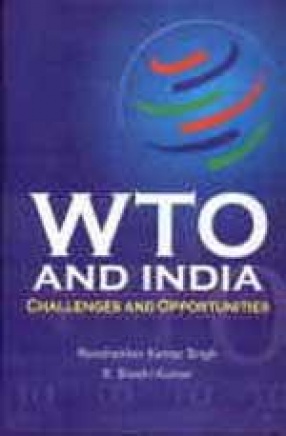
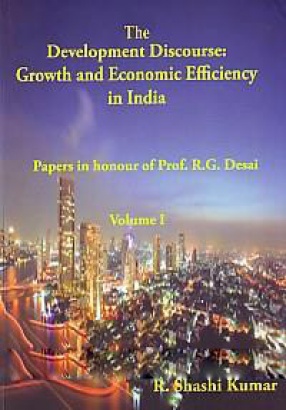
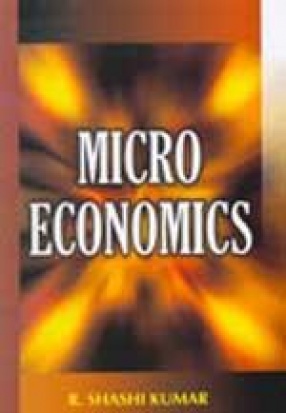
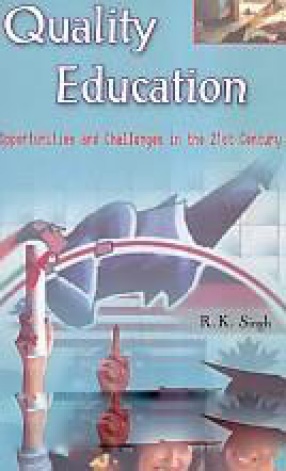
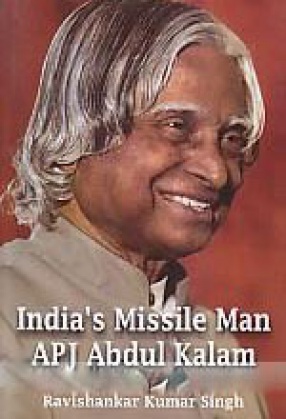
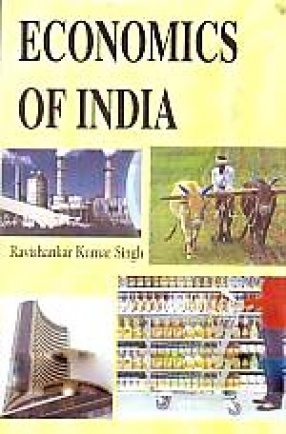


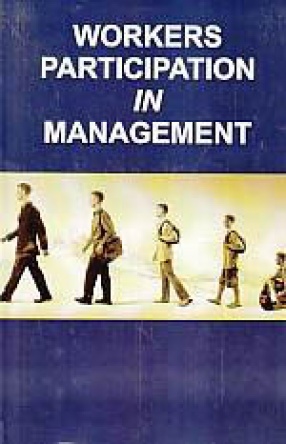
There are no reviews yet.